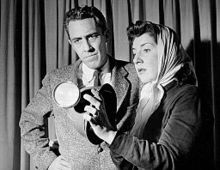
The Macedonian music refers to all forms of music associated with ethnic Macedonians. It shares similarities with the music of neighbouring Balkan countries, yet it remains overall distinctive in its rhythm and sound.

Attilio Joseph "Teo" Macero was an American jazz saxophonist, composer, and record producer. He was a producer at Columbia Records for twenty years. Macero produced Miles Davis' Bitches Brew and Dave Brubeck's Time Out, two of the best-selling and most influential jazz albums of all time. Macero was known for his innovative use of editing and tape manipulation unprecedented in jazz and proving influential on subsequent fusion, experimental rock, electronica, post-punk, no wave, and acid jazz.
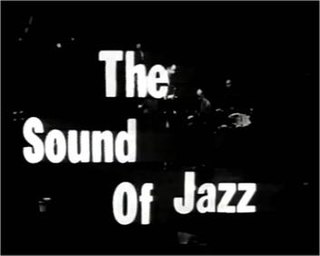
"The Sound of Jazz" is a 1957 edition of the CBS television series The Seven Lively Arts and was one of the first major programs featuring jazz to air on American network television.

Playhouse 90 is an American television anthology drama series that aired on CBS from 1956 to 1960 for a total of 133 episodes. The show was produced at CBS Television City in Los Angeles, California. Since live anthology drama series of the mid-1950s usually were hour-long shows, the title highlighted the network's intention to present something unusual: a weekly series of hour-and-a-half-long dramas rather than 60-minute plays.
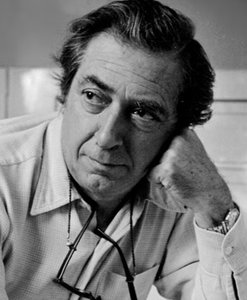
Norman Dello Joio was an American composer active for over half a century. He won a Pulitzer Prize in 1957.
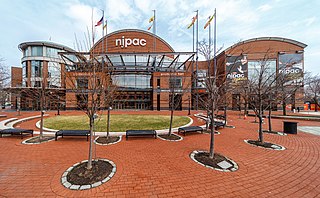
The New Jersey Performing Arts Center (NJPAC), in Downtown Newark in Newark, New Jersey, is one of the largest performing arts centers in the United States. Home to the New Jersey Symphony Orchestra (NJSO), more than nine million visitors have visited the center since it opened in October 1997 on the site of the former Military Park Hotel.

Gilbert Vivian Seldes was an American writer and cultural critic. Seldes served as the editor and drama critic of the seminal modernist magazine The Dial and hosted the NBC television program The Subject is Jazz (1958). He also wrote for other magazines and newspapers like Vanity Fair and the Saturday Evening Post. He was most interested in American popular culture and cultural history. He wrote and adapted for Broadway, including Lysistrata and A Midsummer Night's Dream in the 1930s. Later, he made films, wrote radio scripts and became the first director of television for CBS News and the founding dean of the Annenberg School for Communication at the University of Pennsylvania.
Great Performances is a television anthology series dedicated to the performing arts; the banner has been used to televise theatrical performances such as plays, musicals, opera, ballet, concerts, as well as occasional documentaries. It is produced by the PBS member station WNET in New York City.
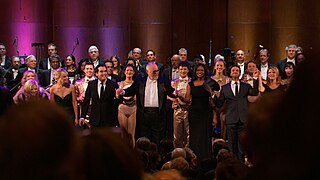
Live from Lincoln Center was a seventeen-time Emmy Award-winning series that broadcast notable performances from the Lincoln Center in New York City on PBS starting 1976. The program aired between six and nine times per season. Episodes of Live from Lincoln Center featured Lincoln Center's resident artistic organizations, most notably the New York Philharmonic. Funding for the series was made possible by major grants from the Robert Wood Johnson 1962 Charitable Trust, Thomas H. Lee and Ann Tenenbaum, the Robert and Renee Belfer Family Foundation, the MetLife Foundation, Mercedes T. Bass, and the National Endowment for the Arts. Production of new episodes has been suspended indefinitely since 2019.

John Crosby was an American newspaper columnist, radio-television critic, novelist and TV host. After winning a Personal Peabody Award for his radio criticism in 1946, he became a member of the Peabody Awards Board of Jurors, serving from 1947 to 1962. During the 1950s, he was generally regarded as the leading critic of television. The latter notwithsanding he was unable to arrest the exponential growth in the viewership of telecasts headlining Elvis Presley, who he attacked viciously in a June 18 1956 article entitled “Performer's Gyrations May Doom Rock 'n Roll". Although the article had been written in response to Presley's 2nd appearance on the Milton Berle Show, which drew 22.1 million viewers,Presley followed it by appearing, this time at the most coveted moment in prime time television, the Sunday at 8pm slot, and did so at both the Steve Allen and Ed Sullivan shows where he garnered 42.1, 60.7, 56.5 and 54.5 million viewers for NBC and CBS, respectively,
Robert Kraft is an American songwriter, film composer, recording artist and record producer. As president of Fox Music from 1994 to 2012, he supervised the music for more than 300 Fox feature films, as well as dozens of TV shows. He co-produced the 2016 Score: A Film Music Documentary about film composers and the evolution of Hollywood film music.

The University of Cincinnati College-Conservatory of Music (CCM) is a performing and media arts college of the University of Cincinnati in Cincinnati, Ohio. Initially established as the Cincinnati Conservatory of Music in 1867, CCM is one of the oldest continually operating conservatories in the US.
Robert Herridge, was a television producer and writer who created the CBS television program Camera Three, among more than 1,700 hours of TV programming, beginning in 1950.

CUNY TV Is a non-commercial educational television station in New York City, and it's also a part of the City University of New York's university system. It offers telecourse programming in various subjects ranging from mathematics, physics, and biology to history, art, and social studies. It also provides cultural programming with shows in German, Spanish, and French. The station was first established in 1985 and in 2007, and became a full-capacity HD studio and post-production facility complete with a six-camera mobile production truck.
Tanec is a folklore musical ensemble from Skopje, North Macedonia. It is considered as an ambassador of the Macedonian folklore tradition worldwide.
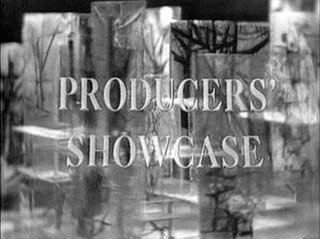
Producers' Showcase is an American anthology television series that was telecast live during the 1950s in compatible color by NBC. With top talent, the 90-minute episodes, covering a wide variety of genres, aired under the title every fourth Monday at 8 pm ET for three seasons, beginning October 18, 1954. The final episode, the last of 37, was broadcast May 27, 1957.
Brian R. Degas was an English producer and writer, merchandiser, and creative packager of ancillary rights.
Choreographer George Balanchine's production of Peptipa and Tchaikovsky's 1892 ballet The Nutcracker is a broadly popular version of the ballet often performed in the United States. Conceived for the New York City Ballet, its premiere took place on February 2, 1954 at City Center, New York, with costumes by Karinska, sets by Horace Armistead and lighting and production by Jean Rosenthal.

Raggs is a live-action/animated TV series for children about five dogs that form a Ragtime band called The Raggs Band. There are 196 half hour episodes and 200 original songs in multiple languages. It was originally produced in Sydney, Australia, with additional production in the United States in English and Spanish. It was first broadcast in Australia on Seven Network on January 2, 2006. In 2014, The Raggs Band reunited to record 20 classic kid's songs.

Kristopher Bowers is an American composer, pianist and documentary director. He has composed scores for films, including Green Book, King Richard, and The Color Purple, and television series, among them Bridgerton, Mrs. America, Dear White People, and When They See Us.
